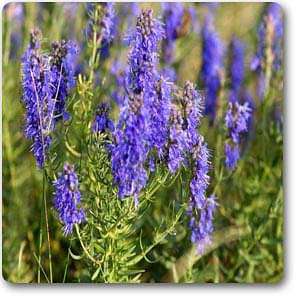
Hyssopus officinalis - Plant
(MRP Inclusive of all taxes)
- Shipping ₹79 for entire order
- Dispatch in 7 days
- Country of origin: India

(MRP Inclusive of all taxes)
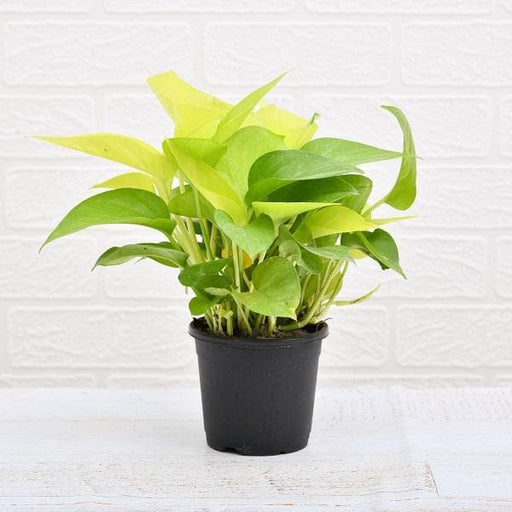 Save 29%
Save 29%
Air Purifier Money Plant with Pot The Air Purifier Money Plant, also known as Pothos or Epipremnum aureum, is a stunning indoor plant that...
View full details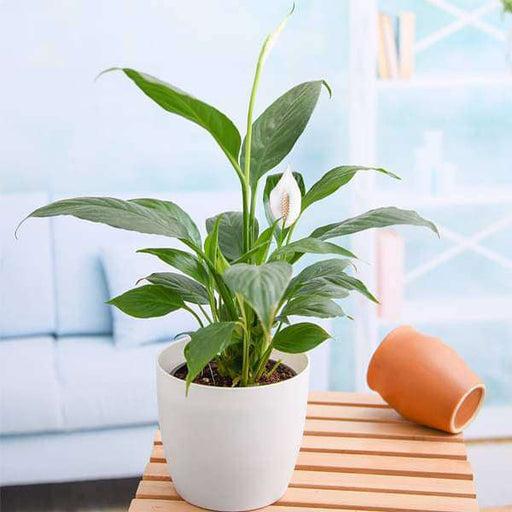
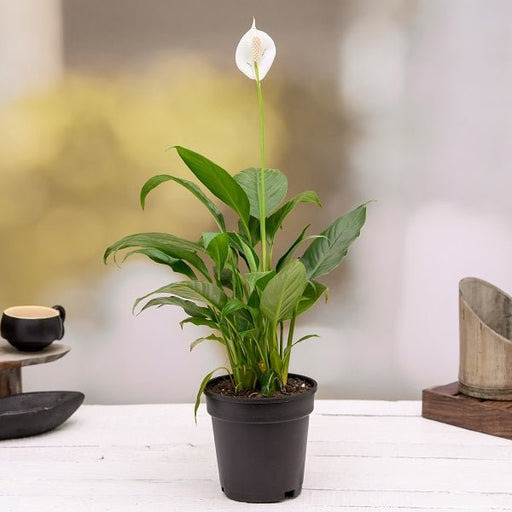 Save up to 15%
Save up to 15%
Peace Lily, Spathiphyllum - Plant The Peace Lily, scientifically known as Spathiphyllum, is a stunning houseplant celebrated for its elegant white...
View full details
 Save 25%
Save 25%
Jasminum sambac, Mogra, Arabian Jasmine - Plant Jasminum sambac, commonly known as Mogra or Arabian Jasmine, is a fragrant flowering plant...
View full details
 Save 18%
Save 18%
Combo Constituents Includes the Parijat Tree (Night-Flowering Jasmine), a culturally significant plant with fragrant flowers. Description The Pari...
View full details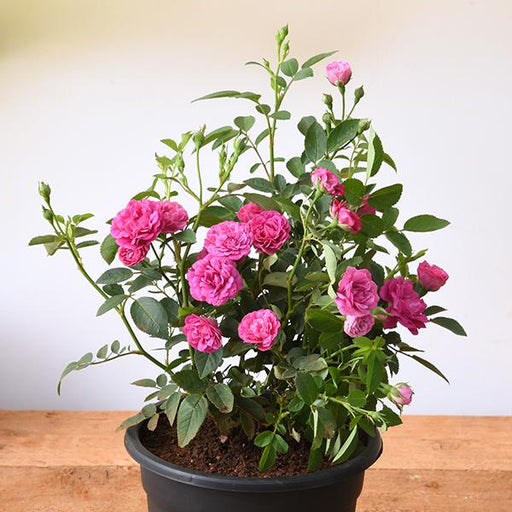
 Save 25%
Save 25%
Miniature Rose, Button Rose (Any Color) - Plant The Miniature Rose, also known as the Button Rose, is a charming and compact flowering plant that ...
View full details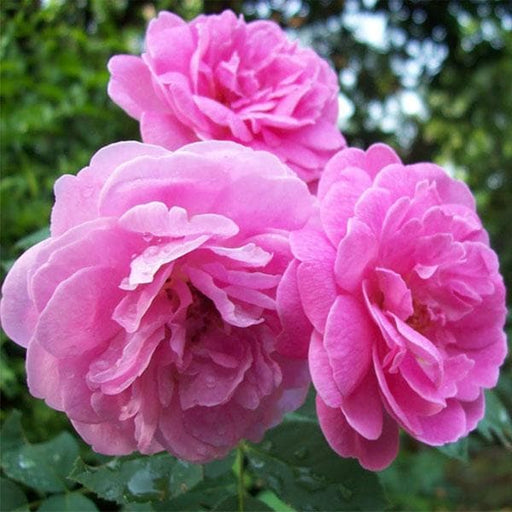 Save 25%
Save 25%
Damascus Rose, Scented Rose (Any Color) - Plant The Damascus Rose, also known as Rosa damascena, is a timeless symbol of beauty and romanc...
View full details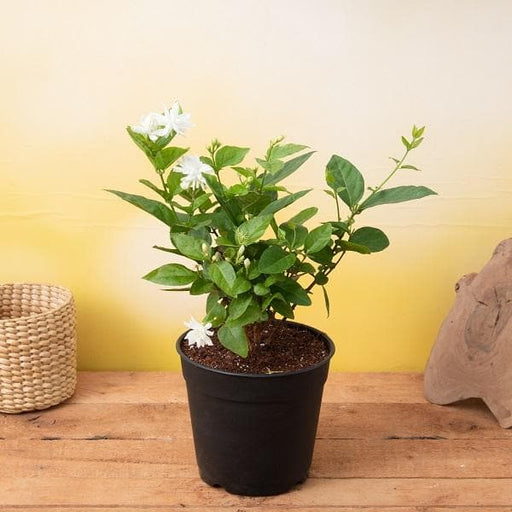
 Save 17%
Save 17%
Beautiful Fragrant Mogra, Arabian Jasmine Plant with Pot The Beautiful Fragrant Mogra, also known as Arabian Jasmine (Jasminum sambac), is...
View full details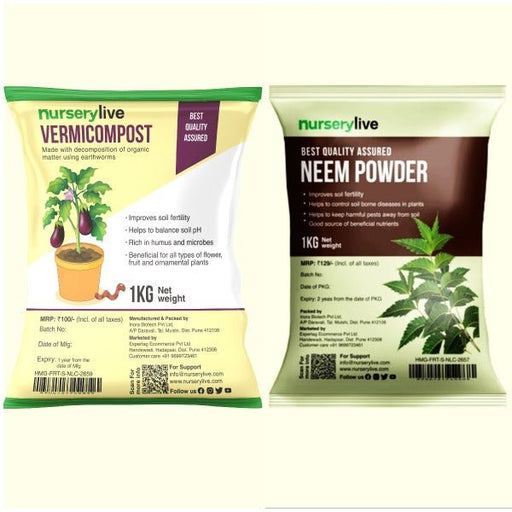 Save 15%
Save 15%
Pack of Vermicompost and Neem Cake for House Plants Transform your indoor garden with our premium Pack of Vermicompost and Neem Cake, spec...
View full details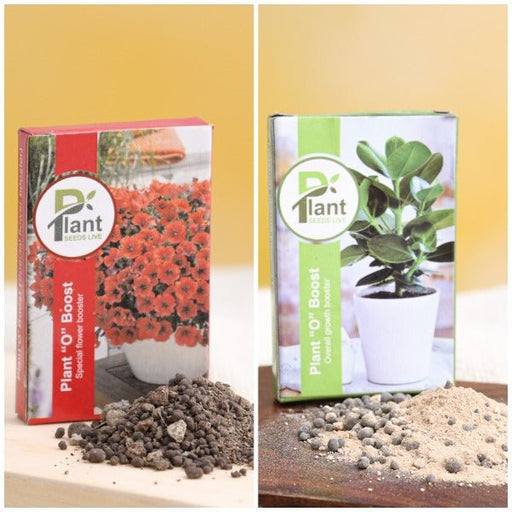
Pack of Plant Growth and Flower Boosters Unlock the full potential of your garden with our Pack of Plant Growth and Flower Boosters! This ...
View full details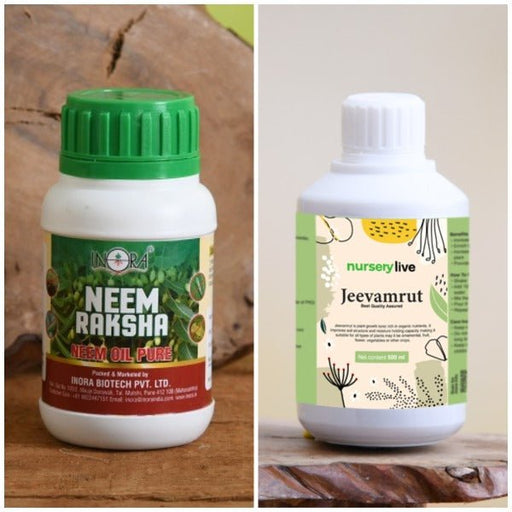 Save 38%
Save 38%
Combo of Jeevamrut and Neem Raksha for Easy Growth and Protection of Houseplants Transform your indoor garden with our exclusive combo of ...
View full details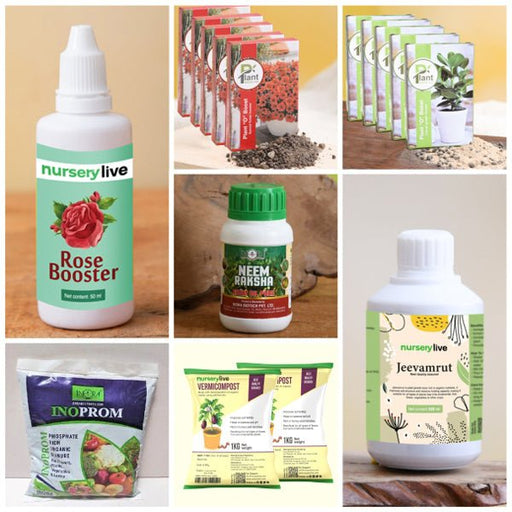 Save 22%
Save 22%
Plant Nutrients Kit (Pack of 16) for a Healthy Garden Transform your garden into a lush paradise with our Plant Nutrients Kit, featuring 1...
View full details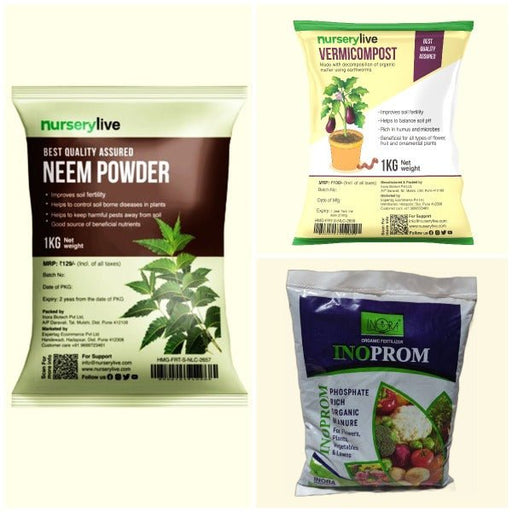 Save 16%
Save 16%
Combo of Top Plant Fertilizers Elevate your gardening game with our exclusive Combo of Top Plant Fertilizers, featuring two bags of premiu...
View full details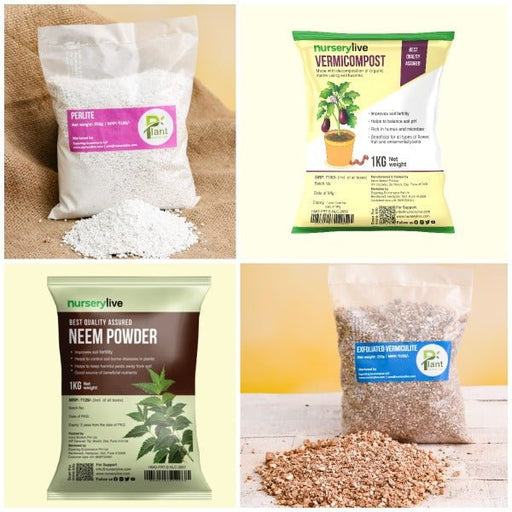 Save 24%
Save 24%
Pack of 4 Additives to Make Soil Healthy and Nutrient Rich Transform your garden into a thriving ecosystem with our Pack of 4 Additives de...
View full details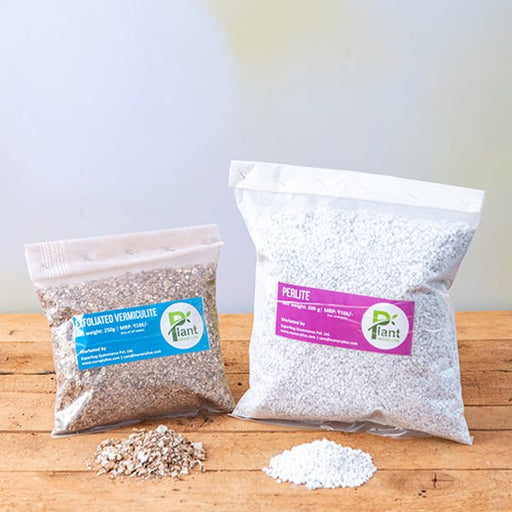 Save 30%
Save 30%
Transform your gardening experience with our premium Combo of Perlite and Vermiculite. This unique blend is designed to enhance soil aeration and ...
View full details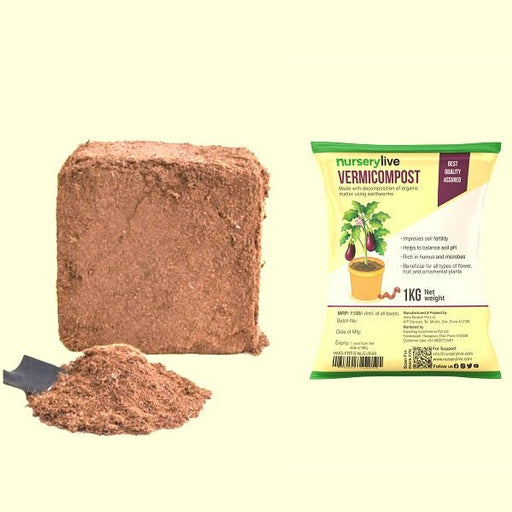 Save 27%
Save 27%
Combo of 2 Vermicompost and Cocopeat - Enrich Your Soil Naturally! Transform your garden into a thriving ecosystem with our Combo of 2 Ver...
View full details
 Save 35%
Save 35%
Best 6 Plants for Perfect Indoor Garden Transform your living space into a lush oasis with our curated collection of the Best 6 Plants for a...
View full details
 Save up to 50%
Save up to 50%
Mini Succulent Garden Pack Transform your space with our Mini Succulent Garden Pack, featuring a delightful collection of 4 any variety beautiful s...
View full details
 Save 30%
Save 30%
5 Best Fragrant Plants Transform your garden or indoor space into a fragrant paradise with our curated selection of the 5 Best Fragrant Plants. Th...
View full details
 Save 24%
Save 24%
Set of 2 Bonsai Looking Grafted Adeniums Transform your indoor or outdoor space with our exquisite Set of 2 Bonsai Looking Grafted Adenium...
View full details Save 45%
Save 45%
Top 4 Die Hard Succulents Pack Transform your indoor or outdoor space with our Top 4 Die Hard Succulents Pack, featuring a curated selecti...
View full details
 Save 30%
Save 30%
5 Best Indoor Plants Pack Transform your living space into a lush oasis with our '5 Best Indoor Plants Pack.' This carefully curated collection fe...
View full details
 Save 25%
Save 25%
Set of 4 Evergreen Air Purifier Plant Pack Transform your indoor space into a lush, green oasis with our Set of 4 Evergreen Air Purifier Pla...
View full details| SrNo | Item Name |
|---|---|
| 1 | Hyssopus officinalis - Plant |
Hyssopus officinalis, commonly known as hyssop, is a perennial herb native to Europe and Asia, renowned for its aromatic leaves and vibrant blue flowers. This hardy plant thrives in well-drained soil and is often used in traditional medicine, culinary applications, and as an ornamental addition to gardens. With a history dating back to ancient times, hyssop has been celebrated for its therapeutic properties and is a staple in herbal remedies.
Hyssop is not just a beautiful addition to any garden; it also boasts a rich history of medicinal use. Ancient Egyptians used it for purification rituals, while the Greeks and Romans valued it for its antiseptic properties. Its ability to attract pollinators makes it an excellent choice for eco-friendly gardens, promoting biodiversity and supporting local ecosystems.
This hardy herb is drought-resistant and thrives in poor soil conditions, making it an ideal choice for low-maintenance gardens. Its aromatic leaves can be used fresh or dried, adding a unique flavor to dishes, while its vibrant flowers attract bees and butterflies, enhancing the garden's beauty and ecological health.
Hyssopus officinalis plays a vital role in supporting pollinator populations, making it an excellent choice for sustainable gardening. Its drought-resistant nature helps conserve water, and its ability to thrive in poor soil conditions reduces the need for chemical fertilizers, promoting a healthier ecosystem.
If you think Hyssopus officinalis is just a fancy name for a plant, think again! This herb is a powerhouse of benefits, from soothing digestive woes to boosting your immune system. It’s like the Swiss Army knife of the herbal world, ready to tackle whatever ails you. Plus, it’s a natural antiseptic, so you can say goodbye to those pesky germs. Who knew a plant could be your personal health assistant?
This isn’t just a pretty plant; Hyssopus officinalis has a resume that would make any herbalist swoon. From culinary delights to medicinal marvels, this herb can spice up your dishes and your health. Toss it in salads, brew it in teas, or use it in essential oils. It’s the multitasker of the garden, proving that you can indeed have your cake and eat it too—just make sure it’s flavored with hyssop!
If you’re ready to roll up your sleeves and get your hands dirty, Hyssopus officinalis is the plant for you. This herb thrives in well-drained soil and loves a sunny spot, making it the diva of the garden. It’s drought-resistant, so you can forget about those daily watering sessions. Just give it some love, and it’ll reward you with vibrant foliage and aromatic leaves. Who knew gardening could be this easy?
Want to spread the love of Hyssopus officinalis? Propagation is your ticket to a mini hyssop empire! You can start from seeds or cuttings, and before you know it, you’ll have a whole army of these aromatic beauties. Just remember, patience is key—good things come to those who wait, especially when it comes to growing your own herbal kingdom.
If you’re looking to elevate your culinary game, Hyssopus officinalis is your secret weapon. This herb adds a unique flavor to dishes, making it a favorite among chefs and home cooks alike. Use it to season meats, enhance soups, or even jazz up your cocktails. It’s like the spice rack’s best-kept secret, ready to transform your meals from mundane to magnificent.
Let’s talk about the aromatic allure of Hyssopus officinalis essential oil. This little bottle of magic is packed with therapeutic properties, from relieving stress to promoting respiratory health. A few drops in your diffuser, and you’ll feel like you’re in a serene herbal spa. It’s the perfect excuse to pamper yourself—because who doesn’t need a little self-care with a side of hyssop?
Hyssopus officinalis has been the go-to herb in traditional medicine for centuries. Ancient healers knew what they were doing when they turned to this plant for respiratory issues and digestive troubles. It’s like the wise old sage of the herbal world, offering remedies that stand the test of time. So, if you’re feeling under the weather, maybe it’s time to channel your inner herbalist and give hyssop a try.
Who needs chemical pesticides when you have Hyssopus officinalis? This herb is not only a delight for your palate but also a natural pest repellent. Its strong aroma keeps those pesky bugs at bay, making it a gardener’s best friend. Plant it alongside your veggies, and you’ll have a natural defense system that’s both effective and eco-friendly. Talk about a win-win situation!
If you’re into aromatherapy, Hyssopus officinalis should be on your radar. Its invigorating scent can uplift your mood and clear your mind, making it a favorite among wellness enthusiasts. Whether you’re adding it to your bath or using it in a massage oil, this herb brings a touch of nature’s magic to your self-care routine. Who knew relaxation could smell this good?
Looking to add some flair to your garden? Hyssopus officinalis is not just functional; it’s also a visual treat. With its vibrant flowers and lush foliage, it can brighten up any landscape. Plus, it attracts pollinators, making your garden a buzzing hub of activity. It’s like throwing a party for bees and butterflies—who wouldn’t want that?
Harvesting Hyssopus officinalis is like a treasure hunt in your garden. The best time to snip those aromatic leaves is just before the plant flowers, ensuring maximum flavor and potency. With a little care, you can dry and store your harvest for year-round enjoyment. It’s the ultimate reward for your gardening efforts—fresh hyssop at your fingertips whenever you need it!
Hyssopus officinalis, commonly known as hyssop, is a perennial herb from the mint family. This aromatic plant boasts vibrant blue flowers and a delightful fragrance, making it a favorite in gardens and kitchens alike. It’s like the herb that throws a party for your taste buds and your garden!
Growing hyssop is as easy as pie—if pie were a fragrant herb! Plant it in well-drained soil with plenty of sunlight. Water it moderately, and watch it thrive. Just remember, hyssop prefers to be a little dry; it’s not a fan of soggy shoes!
Hyssopus officinalis is a multitasker! It’s known for its medicinal properties, including aiding digestion and respiratory health. Plus, it’s a culinary superstar, adding flavor to dishes and teas. Who knew a plant could be a chef and a doctor all in one
Absolutely! Hyssop is the culinary herb that adds a dash of sophistication to your dishes. Use it fresh or dried in soups, stews, and salads. Just remember, a little goes a long way—too much, and you might end up with a dish that tastes like a herbal explosion!
While hyssop is generally safe, it’s best to keep an eye on your furry friends. Some pets might find the taste a bit too strong, while others may nibble without a care. Always consult your vet if you’re unsure—better safe than sorry!
Harvesting hyssop is like snipping a bouquet for your kitchen! Wait until the flowers bloom, then cut the stems just above the leaves. This encourages new growth and keeps your plant looking fabulous. Just don’t forget to leave some for the bees—they love it too!
Hyssop is like the superhero of herbs, but even superheroes have their kryptonite! Watch out for aphids and spider mites. If they crash the party, a gentle spray of water or insecticidal soap can send them packing. Your hyssop will thank you for the rescue!
Yes, you can! Hyssop is the herb that dreams of indoor fame. Just ensure it gets plenty of sunlight and good drainage. A sunny windowsill is its stage, and with a little love, it’ll flourish like a diva in the spotlight!
Hyssop prefers well-drained, sandy or loamy soil—think of it as the Goldilocks of soil types! Too much moisture, and it’ll sulk; too little, and it’ll be thirsty. Aim for a pH between 6.0 and 7.0, and your hyssop will be singing in no time!
Watering hyssop is like giving it a spa day—just the right amount! Allow the soil to dry out between waterings. Typically, once a week is sufficient, but adjust based on your climate. Overwatering is a no-no; hyssop prefers to keep its roots on the dry side!
Hyssopus officinalis blooms in mid to late summer, showcasing its stunning blue flowers. It’s like a floral fireworks show in your garden! These blooms not only attract pollinators but also add a pop of color. So, get ready to enjoy the floral fiesta!
Yes, indeed! Hyssop makes a delightful herbal tea that’s both soothing and aromatic. Steep the leaves in hot water, and you’ll have a cup of herbal goodness. Just remember, moderation is key—too much hyssop can lead to a flavor overload!